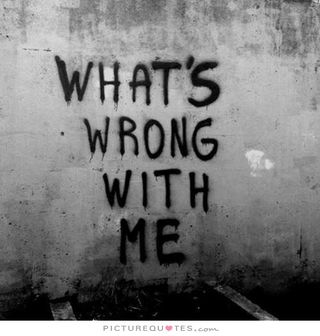Alcoholism
Understanding Self-Destructive (Dysregulated) Behaviors
Why some people find certain behaviors almost impossible to resist.
Posted December 6, 2015 Reviewed by Gary Drevitch
Have you ever realized that one of your behaviors was causing you harm – and promised yourself you would stop? Have you then worked your hardest to resist the urges for a few hours or even days – only to eventually start engaging in the behavior again?
If so, you may have told yourself you are weak, selfish, have an “addictive” personality, and/or have other qualities that basically mean something about you is inherently wrong.
The truth is: These explanations are not supported by research.
Self-destructive or dysregulated behaviors provide relief or even pleasure in the short-term, but ultimately get in the way of living a life that feels satisfying and fulfilling. These behaviors can include alcohol/drug abuse, binge eating, compulsive computer gaming, self-injury, smoking, chronic avoidance, or a host of other behaviors that feel helpful in the moment but harmful over time.
People who struggle with dysregulated behaviors can differ dramatically, but tend to share some common traits. The following description is oversimplified; it might not fully apply to you, but it provides a general idea:
If you struggle with dysregulated behaviors, you probably were born with a tendency to feel emotions a little more strongly than other people do. This is not a negative trait. In fact, you are likely to be more creative and/or empathic.
Unfortunately, you also may have grown up in an adverse or invalidating environment. Adverse environments may include:
- Extreme experiences such as physical abuse, neglect, or continuous criticism.
- Routine experiences with family members who discourage expression of emotions or use dysregulated behaviors to cope with their own emotions.
- Experiences outside the home, such as bullying at school, abuse by another caretaker, routinely being excluded by other children, etc.
If you were born with the tendency to feel strong emotion, and you were routinely put in situations that would be emotionally painful for anyone, then the pain probably started to feel unbearable at times. Chances are high that you eventually tried to “turn off” the pain. At first you may have told yourself: “I’m just going to try not to feel” or “I’m just not going to think about it.” But over time, you probably felt like you needed additional help with turning off painful emotions. And so you resorted to one or more dysregulated behaviors.
These behaviors can seem so effective in the short term that you might have never learned adaptive ways to handle negative emotions. In addition, using a dysregulated behavior to turn off uncomfortable emotions is like putting an air-tight lid on a pot of boiling water:
- The emotions are still there, just like the boiling water and steam.
- The behavior provides relief for a short time, but the emotions keep building – just like the steam and pressure keep building in the covered pot. Eventually you may feel as though you are almost always under pressure.
- If the emotions are never experienced or processed (if none of the steam is released from the pot), the pressure will keep building until the pot eventually explodes.
- The emotions, in other words, will feel especially unbearable.
- As a result, you may try even harder not to feel the emotions – possibly by engaging in the dysregulated behavior (putting the lid back on the pot).
- If so, you will feel relief for a short time, but the pressure will almost always start building again.
- ... and the cycle will likely repeat, and repeat.
One woman said she knew her drinking led her to feel worse in the long run, so she vowed never to drink again. The next evening, she felt bored and a little anxious, and she realized she had strong cravings for alcohol. She tried her hardest to get through the night without drinking, but she eventually felt like it was impossible to resist the cravings. So she drank, despite knowing she’d regret it later.
That feeling of lack of control can seem depressing, scary, and hopeless. It may also lead you to decide that something about you is inherently wrong.
However, if you only know one primary method of reliably stopping pain or discomfort, it makes sense that you will have strong urges to engage in that behavior when experiencing pain or discomfort (or cravings, which can feel painful and uncomfortable). It also makes sense that you will have extreme difficulty stopping the behavior.
Upcoming posts will provide further research-consistent explanations about why you may find certain behaviors to seem impossible to resist, and discuss methods that can help you overcome these behaviors and move toward a life that feels more fulfilling. None of these methods are quick-fixes. Moving past dysregulated behaviors is often extremely difficult and painful. However, methods exist that can improve the odds.
Until then, please remember that struggling with self-destructive or dysregulated behavior does not mean you are weak or selfish, or that something about you is inherently wrong.





